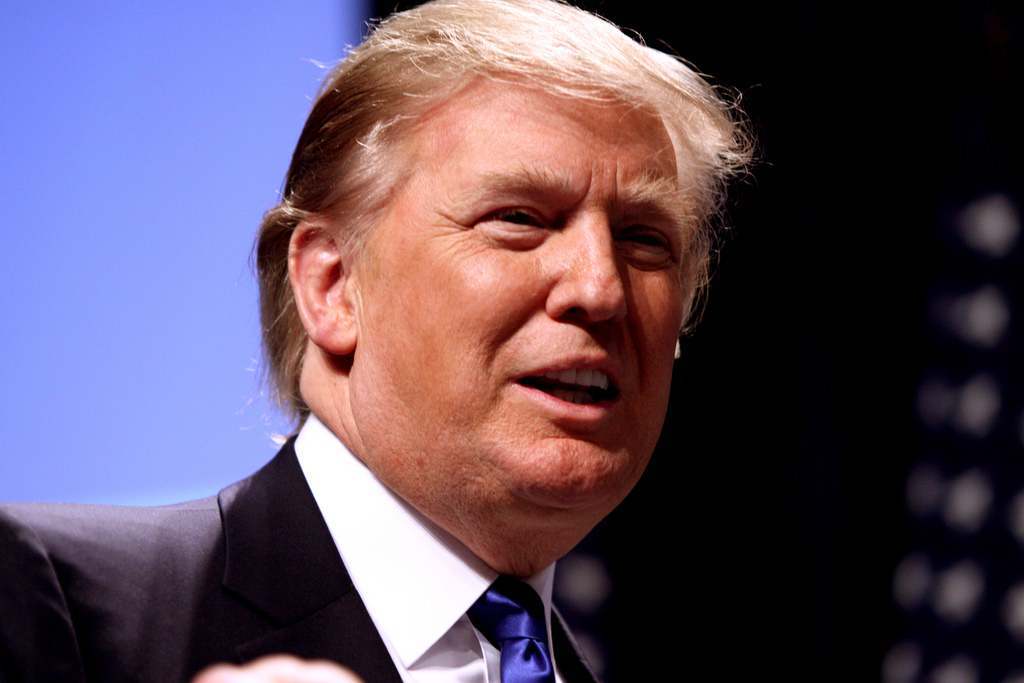This week marks the 10th anniversary of the onset of the 2008 financial crisis, and Trump is taking advantage of it to claim credit for the current state of the U.S. economy — and on the other side of the Jekyll and Hyde transformation that has become the Oval Office, he’s dodging blame for what happened in Puerto Rico in the aftermath of Hurricane Maria. The readiness to seize on any opportunity to claim credit for things that delight Americans isn’t unique to Trump, of course, and neither is the desire to avoid culpability for misdeeds. But as with everything Trump, it’s outsized, tremendous, even, in its blatancy and implications.
To understand the two sides of Trump this week, it helps to take a brief detour into social science and the paired phenomena known as basking in reflected glory (BIRG) and cutting off reflected failure (CORF). Everyone engages in these activities to a certain extent, but Trump excels at it, has indeed built his career on it.
BIRGing involves taking credit for accomplishments, whether or not you were actually responsible for them; the goal is to receive some of the adjacent praise, as when someone does nothing on a group project but sails in at the last minute to claim responsibility when it goes well. At times, BIRGing becomes so extreme that people are utterly unaware they’re doing it. They are, instead, convinced that they were there in the moment, making decisions that contributed to the positive outcome. Sound familiar?
CORFing is effectively the opposite, distancing oneself from catastrophe. Just as a cat who knocks a plant off a high shelf saunters innocently away, many humans attempt to find a way to be elsewhere when something goes horribly wrong and they might be held accountable. This, too, is classic Trump — there’s always a reason he couldn’t possibly be to blame. You’ll see!
This week has featured a veritable cornucopia of high profile BIRGing and CORFing that highlights the morally bankrupt nature of the Trump Presidency, as well as demonstrating the degree to which Trump has moved the bar. His comments are so utterly outrageous that they would be unconscionable coming from any other president, but instead, they’re treated as ordinary and unremarkable. Just another day in Washington.
Economic BIRGing
Trump has long boasted that economic growth and recovery are the product of his presidency and no one else’s, something Barack Obama was forced to fact check. Is Trump right?
To answer that, it may help to turn the clock back to 2009, when President Obama took office, inheriting a financial collapse from his predecessor. Despite the fact that Americans had watched the economy tumble under President Bush, they insisted on blaming Obama for it — and much of his presidency was occupied with slowly rebuilding a fragile economy into a robust one. It takes years, nearly a decade in fact, to set an economy on the path to recovery from recession, and Obama managed that despite obstructionism from Republicans and economic troubles elsewhere in the world that interacted with struggling Americans.
When Trump inherited that economy, he immediately began sabotaging it. While Trump claims that the economy is thriving under his presidency, the truth is much more complicated. In fact, the economy is not doing as well as Trump says, and the indicators are highly visible to even the casual eye. Trump is right when he takes responsibility for the economy, but not in the way he means: The slipping economy can actually be attributed to things like his trade war and volatility, which tends to provoke startled responses from US markets. When a downturn becomes inevitable, which may happen as soon as 2019, will Trump be so quick to take the credit, or will he invent a Democratic conspiracy theory?
Catastrophic CORFing
This week, Trump has been on an outraged tear in the aftermath of an announcement that the death toll from Hurricane Maria in Puerto Rico has been revised from a little over 100 to closer to 3,000. This writing has been on the wall for months. The only question was why the government so stubbornly pretended the real death toll wasn’t much worse than advertised.
Now, Trump insists that these numbers “don’t count” because they reflect people who died shortly after the storm, rather than during the storm. It shouldn’t take a brain trust to figure out that when a severe storm knocks out power for months, makes rebuilding difficult, cuts off supplies, and creates emotional turmoil that deaths attributable to these things are the result of the storm. 3,000 people who shouldn’t have died, statistically speaking, died after Hurricane Maria. And only one person is responsible for that: The megalomaniac in the White House who undercut FEMA funding, dismissed concerns about the severity of the storm, attacked the mayor of San Juan when she was trying to do her job, and tossed paper towels out at photo ops instead of taking the threat of the storm seriously.
As the Puerto Rico postmortem emerges, Trump is seeking someone — anyone — to blame, including, again, the mayor of Puerto Rico. He wants no part of this failure, and he cannot be allowed to escape responsibility. He was the man in the room making the ultimate calls, and thousands of people died for it.
So what comes next? Who will hold Trump accountable for these blatant lies, and this attempt at retconning history? This is basic social science, not rocket science, and right now, an alarming number of Americans are falling for it. One reason why has been the tolerance for misinformation and conspiracy theories that allows people to believe whatever they feel like believing, regardless of facts. Presenting people with facts doesn’t seem to change their minds, so convinced are they of the truth of Trump’s rhetoric, and this is why America finds itself in such a dangerous place.
Photo: Gage Skidmore

